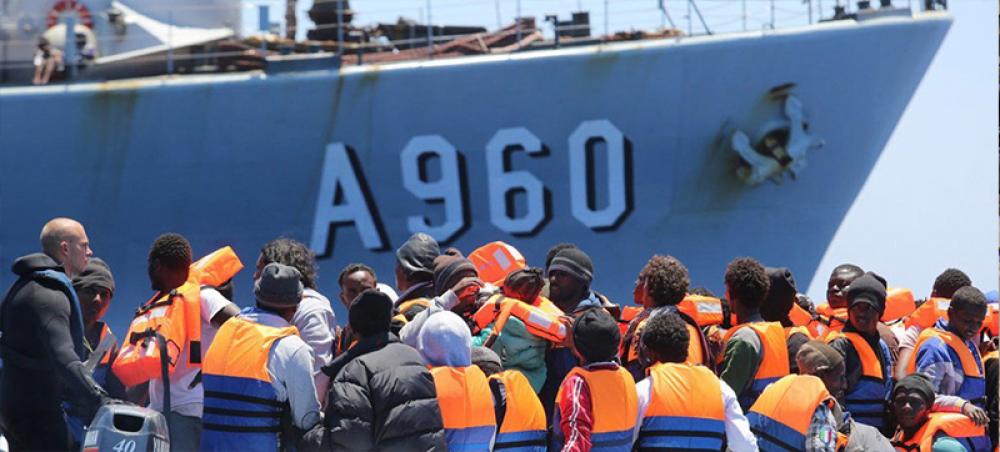Just Earth News | @justearthnews | 10 Feb 2023

Image: IOM/Francesco Malavolta (file)
New York: Activists working with sea-rescue charities in Italy should not be criminalized, a UN independent human rights expert said on Thursday, ahead of a trial against crew members from several non-governmental organizations (NGOs).
Preliminary criminal proceedings opened last May in Sicily against 21 people charged with aiding and abetting illegal immigration in connection with several search-and-rescue missions conducted between 2016 and 2017.
#Italy: Criminalisation & repression of human rights defenders involved in search and rescue NGOs must end - UN expert: The ongoing proceedings in Sicily are a darkening stain on Italy and the EU's commitment to human rights. Saving lives is not a crime.
Those accused include four crew members of the Iuventa, a former fishing trawler credited with saving some 14,000 migrant lives in the Mediterranean Sea, and human rights activists from other civilian vessels.
‘Solidarity is not smuggling’
The ongoing proceedings are “a darkening stain on Italy and the EU's commitment to human rights”, said Mary Lawlor, UN Special Rapporteur on the situation of human rights defenders.
“They are being criminalised for their human rights work. Saving lives is not a crime and solidarity is not smuggling.”
Ms. Lawlor has engaged with the authorities on the issue.
‘A very disturbing sign’
She noted that the proceedings have been plagued by procedural violations, including failure to provide adequate interpretation for non-Italian defendants, and translation of key documents.
Last month, the Italian Prime Minister’s Office and the Ministry of Interior applied to join the case as plaintiffs, seeking compensation for damage claimed to have been caused by the alleged crimes.
“States that respect human rights promote the work of human rights defenders,” said Ms. Lawlor. “The Government’s decision to seek to join the case goes directly against this principle – it is a very disturbing sign.”
Lives at further risk
The case is unfolding against a backdrop of new restrictions imposed by the Italian authorities on civilian search and rescue operations.
Since December, NGO ships have consistently been instructed to disembark rescued persons at ports in north and central Italy, or several days’ sailing from rescue sites in the Central Mediterranean.
Furthermore, new regulations for civilian search and rescue, introduced in January, effectively prevent NGO captions from carrying out multiple rescues during a mission.
They must now request a port of disembarkation and head there without delay or risk facing heavy fines and having their vessels impounded.
Ms. Lawlor urged the Italian Government to repeal the legislation, which is incompatible with its obligations under international law.
“The new legislation and instructions on ports of disembarkation are obstructing essential activities of civilian rescue ships,” she said. “They are widening the search and rescue gap in the Central Mediterranean, putting lives and rights at further risk.”